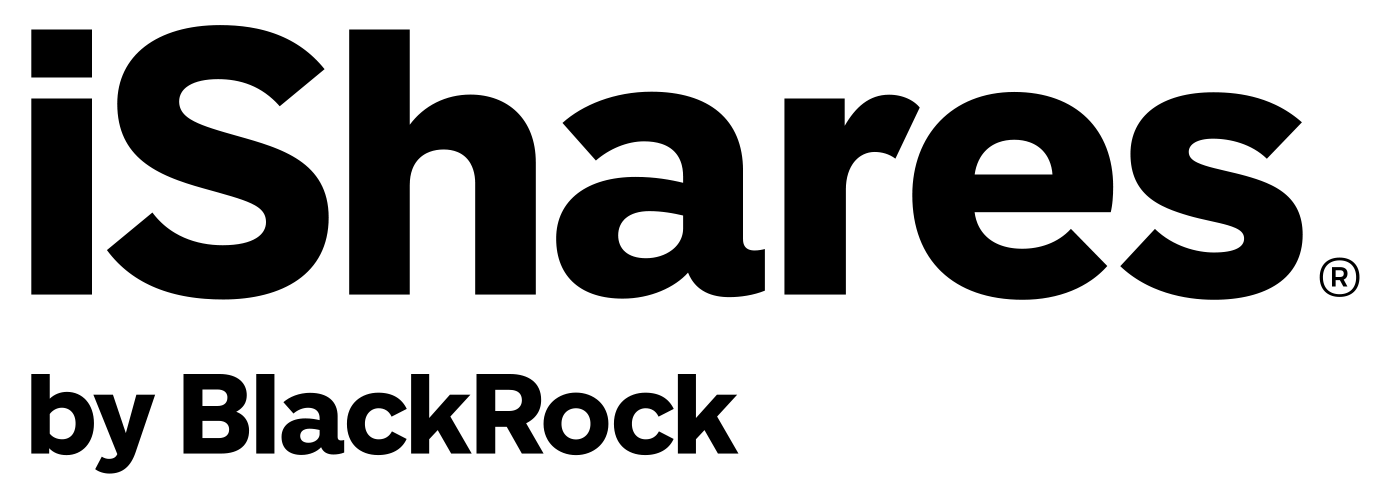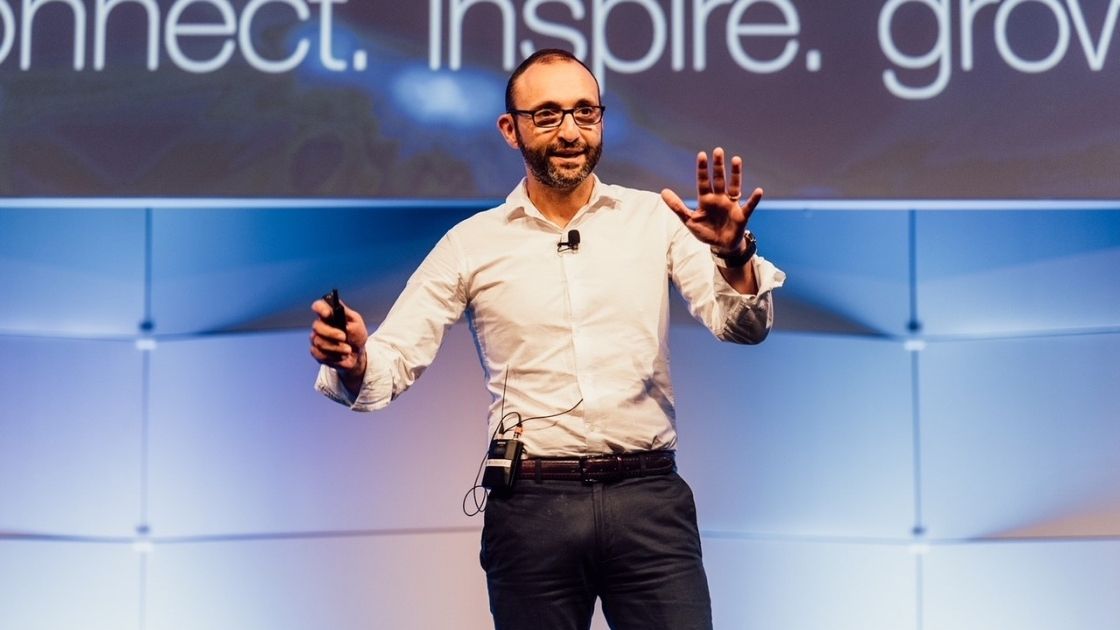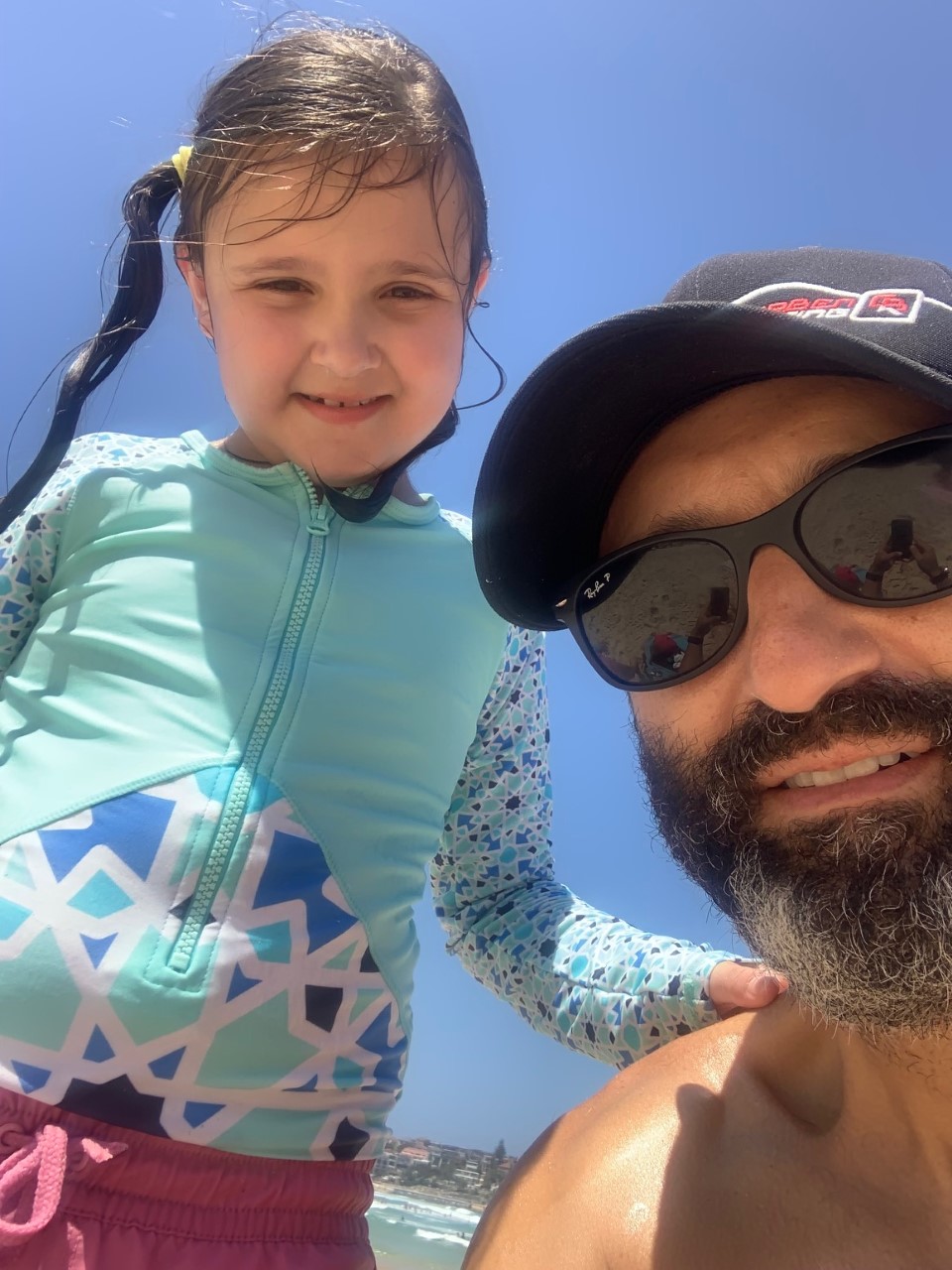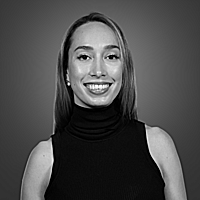Meet Charlie: The adviser who likes revving engines (and rumbling returns)
Charlie may be a familiar face for Livewire readers, particularly for fans of Buy Hold Sell. Having consistently ranked in Barron's Top 100 Financial Advisers annual list, he knows a thing or two when it comes to quality advice.
Aside from his work in financial advice, a career that has spanned over 20 years, Charlie has a fondness for fast cars. Behind the wheel of one of his three race cars, his favourite of which is Honda Integra, he has sped to glory to win numerous events (including one just this past weekend).
But life, as Charlie is well aware, comes with its bumps, cracks and obstacles.
"I have a child with reasonably profound special needs. It's beyond difficult at times... Sometimes the hardest thing is working out who to ask for help when life is shit. And sometimes, it gets beyond shit," he admits.
"But equally, sometimes it's wonderful, and I don’t want people to lose sight of that either."
In the very first edition of our "Meet the Adviser" series, Charlie shares his portfolio building process, his go-to funds for clients, as well as how he discovers new funds and products.
In a Livewire first, we also ask Charlie to lift the hood on his own personal portfolio. He names his three biggest equity holdings and opens up about the passions that will continue to drive him well into the future.
Financial adviser profile
- Name: Charlie Viola
- Age: 43
- Current firm: Pitcher Partners Sydney Wealth Management
- Years working as an adviser: 23
- Investment goals: Have enough so that work becomes optional. Having enough includes continuing to be able to afford race cars! Not just bread and milk…. I also very much want the kids to have something to fall back on – but not too much, they need to work for their own as well.
- Products used: I don’t use a lot of products personally but have certainly backed a number of the managers that I like and have tipped clients into. I have taken positions with a number of PE managers, property groups and various co-investments where I like the jockey – so to speak. I am mainly a direct investor, whether it be property, equities or PE style punts…
- Biggest portfolio holding: At the moment it's probably my exposure to commercial property. A lifelong friend and I decided to play property developer with some dirt we acquired near where we grew up. We put some factories up, they did well and we have continued to do that a couple of times over.
.jpg)
Why did you choose this profession and how did you get started as a financial adviser?
I reckon it pretty much chose me if I am being honest. I started working in a bank in reasonably junior roles. When they realized I was a good talker, I found myself in deposit-taking sales roles. That then led to junior ‘financial adviser’ roles, where really we were just distributing the banks four managed funds that they had at the time. After progressing through that for a few years and into more senior roles, I left the bank in 2003 to join what is the business I now run. We literally had nothing at the time, so started ringing people out of the phone book. 19 years later, it's done ok…
What do you believe makes you different from other advisers in the industry? Do you have a particular specialty or unique approach?
Not sure if I am honest. I would say though that it may be three things:
- I try and be very honest and human with clients. It doesn’t matter how much money people have, they are just people. I find building rapport is the best way to genuinely understand them.
- I am a big one for being completely goal-driven in all the investment decisions we make. i.e. what are they trying to achieve from the money we are managing?
- We work hard to find good quality private investments that we think add real value – and hopefully, over time, better returns. We believe in equities and traditional assets, but we don’t believe they should be 80% of portfolios. When someone has $10-40 million in assets, there is only so much BHP and CBA shares you can expose them to. So we work hard to create genuine diversity.
Can you share a bit about your process for building portfolios and selecting investment products?
I have probably just touched on it above, but I think in brief terms:
- We start with the goals piece – what are they trying to achieve, what level of passive income do they want, what legacy do they want to leave, what assets do they like or hate.
- We still risk profile like most groups, but only to get a sense of knowledge of the client.
- Then we construct portfolio’s overtime. We are big ones for holding cash until the right to deploy comes along. Whether that’s weakness in equity markets, or private opportunities that come along (whether that be property, debt, equity, VC etc).
- We then make sure we remain diligent around allocations and ensuring the portfolios are generating their return in different ways, but delivering what the client actually wants. We do make sure we manage liquidity risk as part of this. If the client wants money back to buy a Porsche, or give the kids money, we need to know we have access to money for them.
Can you share two of your “go-to” funds with us?
That's hard, as I would say that every client will have traditional risk assets (i.e. equities), but we will do that direct generally.
For global equities, clients would have exposure to the iShares Global 100 Fund (ASX: IOO). We think that's a good base way of getting global exposure. And then the other one we really like is the Loftus Peak Global Disruption Fund (ASX: LPGD). We've poured a fair bit of money into that over time, and we probably find that most clients have exposure to those two from a global equity point of view. From a domestic equities point of view, we don't use a lot of funds at all, to be honest with you, we do most of our domestic equities direct. If we wanted pure ASX 200 exposure and we were trying to pick a dip in the market, we would buy SPDR S&P/ASX 200 (ASX: STW).


I am a big fan of real assets. I like being able to show the client what they are investing in, how the return is being generated and what the risk factors are. In the past 12 months, we have been a big investor in Kingsmede Partners Brisbane Industrial Trust. It is well run, well managed by a group with great resources, buying boring simple commercial properties in a great location. It won't blow the doors off, but it will generate good quality ongoing revenue for client portfolios. Whenever they re-open for more capital, we will generally participate.
But again, it's about ensuring we have diversity, no portfolio will be just equities or just private syndicated property. The value in deploying capital over time is that we will take opportunities as they come.
When we do get to that point of being fully invested, which will happen, we will often either re-size liquid parts of the portfolio, or typically, investments we had taken at the beginning of the process will start to come back. Many of the private debt deals we do, with groups like Stamford Capital, Pallas or White and Partners will have terms. This will allow us to stagger money out and re-use it as it comes back. We do try and manage these investments closely.
How do you discover new managers and investment opportunities in a market saturated with products and issuers? What makes a manager stand out?
Cracking question. I must say, most of the time they find me! One thing I feel strongly about is that I will give everyone the time of day. If we don’t like it, we will be nice – but tell them early.
I once had to beg for work, so I always respect when people have spent the time to try and find me to discuss their offering.
The other way is clients will find it. It seems there are quite a few "once was an investment banker, now is a fund manager" types. Over the years, there have been countless times where a client has said to me, "My neighbour who has a bigger house and nicer car than me, told me about a fund he is running. He used to be a banker at XYZ investment bank, and now just runs his own money. He has done super well, especially if you look at the fact his toys are nicer than mine. He has been telling me to invest in it. Can I give him your details to have a look?" Or we will have clients who have other colleagues investing in things, and FOMO takes over.
We try and be super diligent around how we do due diligence. We have a defined process for approval. So far, after many years of doing this, we have had great outcomes. There are heaps of smart people about, you just need to find them.
In terms of what stands out – we want to know that a manager is unequivocal in his/her space. We want to know they are the subject matter expert, and they have real skin in the game.
A pitch deck from a fund manager arrives in your inbox, what happens next?
We will have a cursory look, but we will always respond. If it's something we have well covered and does the same as what managers we like and trust do, we will probably say no thanks. If it is a genuine value add, or is something different, we will ask for access to the data room and go deeper.

How would you describe your personal investment strategy?
Mixed! I have a range of normal equities that I am happy to keep buying. I have taken a punt and invested in a number of direct VC style opportunities where I am backing the management team and the people running it. I love these. I watch on from the background but love seeing people succeed. Then I have the property investments I do with my mate, which means we have something to talk about, but I love how much I have learnt about the process.
I do have a massive interest in the PE/VC space. I went off to MIT a few years ago and geeked out with some people from the US to learn about how they assess capital, how they get opportunities, and how they get a line of sight to liquidity. I find the whole thing fascinating.
Could you please share your top three holdings in percentage terms in your personal portfolio and tell me a bit about why you hold each of these positions?
In terms of equities, my biggest individual listed shareholdings are:
- Iris Energy (NASDAQ: IREN) – 25% - Listed on the Nasdaq. It’s a green/renewable energy bitcoin miner. I got tipped in by a mate. I met the founders, Dan and Will Roberts, who are just the smartest blokes on the planet – and I invested in the second and third and fourth rounds. It listed late last year, and while it got off to a muted start, I have spent time learning about what they do and I am a massive long-term believer.
- Steadfast (ASX: SDF) – 15% - This is a bit of a legacy investment. We sold a business to them a number of years ago, and I got a reasonable exposure when it IPO’d. I have held it ever since and it's been a cracker. It is well run, has great use of its balance sheet and brilliant strategic direction.
- Macquarie (ASX: MQG) – 7% - I have just kept buying it over the years. This business uses its balance sheet better than anyone else, it has the smartest people running it, and I am a believer in what they do in the infrastructure space. From the outside, I also love their culture. I believe all organizations should be meritocracies.
Could you tell me about your worst investment? How did you deal with this falling position or fund?
I was young and dumb. Some bloke with a Texan accent rang me and sold me exposure to these defunct oil wells that he and his team would get in and run again. They promised dividend cheques forever… I invested in the first one, and two weeks later a divvie cheque turned up. I figured I was a genius. So when he rang again, I pumped a bit more into a new venture. Needless to say, six months later, no more cheques came, and they wrote me an email to state the wells were now no longer producing and were no longer commercial.
Thank f*** I was at least smart enough to get in writing that my risk was limited to my initial capital only. And while at 23, the loss was bucket loads, it was only about $40k USD. But it made me sceptical!
What conversations are you most frequently having right now with clients? And what is your answer to these questions?
In truth, the conversations we have with clients haven’t changed much over the years. How do I produce a reasonable revenue stream? How do I better predict the buying power of my money?
At any given time, questions will be topical – like perhaps:
1. What's your view on the impact of inflation on my portfolio?
My answer: We are wary of it, but still believe long growth numbers look attractive and we expect that based on the strength of balance sheets, markets will see through it over time.
2. What's your view on interest rates?
My answer: They are at all-time lows, and in relative terms, they will stay low, whether this low is questionable of course. We are certainly not going out and buying heaps of long-dated bonds in this environment.
3. What is your view on cryptocurrencies?
My answer: I don’t have a view on most of the stuff; Ripple, ETH etc. I have a view on Bitcoin though. Where once I wrote it off as a game for kids or a way for crooks to launder money, now I see it differently. I look at it in the context of money/currency and the fundamental things that makes something ‘currency’. Store of value; separable; hard to counterfeit; rare; exchangeable; regulated. BTC has all that. So I believe it has its place.
Are we tipping huge amounts of client money to BTC? No. Will we find a small allocation if they desperately want it? Yes - but only with all the usual warnings of possible loss. It's certainly not something we openly advocate, as, in reality, we want our clients' assets generating revenue for them.
What are the most common mistakes you see in the portfolios that you inherit and how do you go about fixing them?
I would say it's a lack of diversity. When you have had an environment where markets have basically done nothing but go up, you do find people have been lazy (or maybe we as advisers have been lazy) and sought to generate their return all one way. I like to try and get people to generate their returns in different ways.
If you could change one thing about the industry so that it can better serve Australians, what would that be?
Again, it's hard. I am an investment guy, more than a planning guy. So while we still very much look to understand what people want, and make sure we get all the right money in all the right buckets, by far our value add and our enduring service is the investment piece and the ongoing trusted adviser piece. So I can be accused of being part of the problem, that I only want to look after wealthy people.
But I think if I could change one thing, it would be this notion that advice has to be end to end.
It doesn’t. It's like getting married before a first date. We have to be ok that advisers can provide services on a separable basis. If someone just wants help with their loans or insurance, then they should be able to get that. If they just want help with super, then they should be able to access that. This retail financial planning process where you need to full-on marry the client to deal with them, because of the legislative burden, has made advice unaffordable.
I do think the increased regulation and new education standards in the industry is a good thing. I certainly feel for really experienced guys who have been in the market for a really long period of time.
I think it's wrong for someone who has been doing a really good job for 20 years to be suddenly less qualified than a guy with two years' experience straight out of university.
But the rules were previously easy to manipulate and the barrier to entry was so low, that something had to be done.
And while I think there needs to be a level of reprieve for people who have been around for a long period of time, increasing the barrier to entry and increasing education standards, making the industry more professional and harder to do and perhaps even more sought after, has to be a good thing.
.jpg)
Can you share a personal passion or ambition you have for your future?
One of my personal flaws is that I am a massive romantic. I get overly emotional about things and I get too heavily invested. So if I do something, I get in boots and all. Outside of the usual answers here about being passionate about my kids and family, and watching my kids turn into good humans, I am passionate about four things (and in no particular order):
- Being a race car driver. I love it, it’s the best possible respite. I love the competitiveness of it, but also the visceral nature of the smell and the sound etc.
- The Liverpool Football Club. Sometimes it's more misery than joy, but it's something that affects my mood. Don’t talk to me if they haven’t won!
- Educating young people about investing. I love the investment journey. I recently invested in a start-up investing podcast/media company called Equity Mates. Two super-smart blokes who help thousands of young retail investors get started via some great content.
- Helping families in situations like mine. I have a child with reasonably profound special needs. It's beyond difficult at times. But equally, I know we are lucky as we have the resources to get help and support. I have recently joined the board of Autism Awareness Australia. I have done so to try and help kids like my daughter, but also other families. Sometimes the hardest thing is working out who to ask for help when life is shit. And sometimes, it gets beyond shit. But equally, sometimes it's wonderful, and I don’t want people to lose sight of that either. My little girl loves the beach, so we try and embrace it and do what makes her happy!

Did you enjoy Livewire's new Meet the Adviser series?
If you enjoyed hearing about Charlie's investing journey, please give this wire a 'like', and if you know someone who might enjoy the article, why not send them the link.
You can access more of our Meet the Adviser and Meet the Investor interviews by clicking here.
We are looking forward to hearing from more financial advisers in 2022. If you are interested in being profiled in our Meet the Adviser series, contact us using the email address below:
content@livewiremarkets.com
3 topics
4 stocks mentioned
2 funds mentioned

